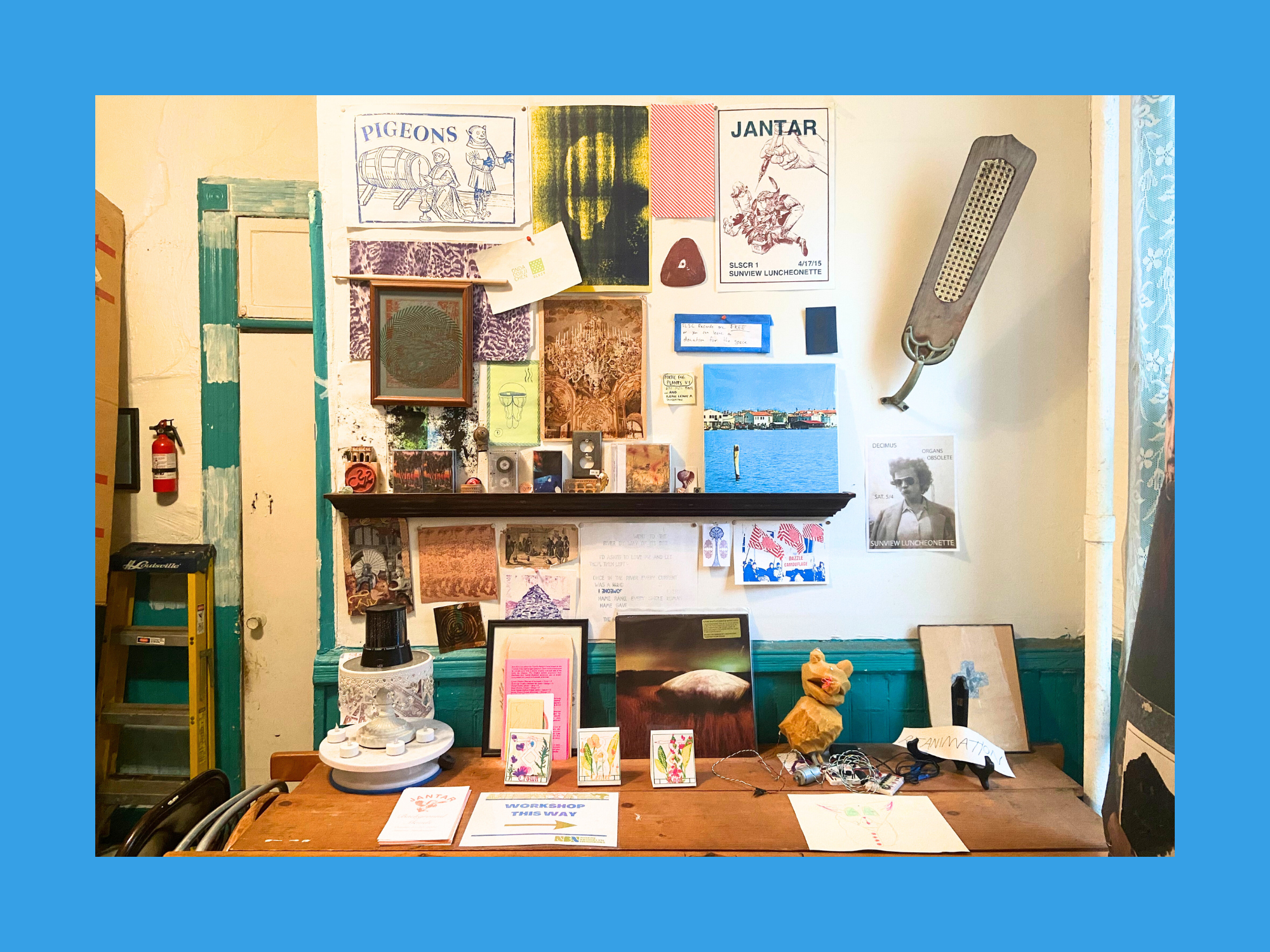Tune In, Drop Out
The independent musicians and labels who are saying no to streaming.

When Chad Laird conceived of his small record label, SLSC, in 2015, he was trying to imagine the opposite of Spotify. He’d grown up as a fan of indie rock in the golden age of bands like Sonic Youth and Dinosaur Jr., and had formative experiences seeing experimental music and art performed at free shows in unconventional locations—lofts, rooftops—after moving to New York City in the 1990s. He tried streaming years ago but quickly deleted his Spotify account, put off by the way it turned the music he loved from an avenue for free expression and community-building into an impersonal commodity. One small way to fight back, he figured, would be to invert their formula.
“It started as a kind of aesthetic game, an exploration of the logic of the opposite of Spotify,” he said. “The idea was to think through this notion of, if Spotify grants universal access, wherever you are, and you pay for it with a subscription fee, then I want to make it as inaccessible as possible. The music is going to be in the back of this old diner, and you can only go there one night to get it, but it’s going to be free.”
The old diner in question is Sunview Luncheonette, a defunct neighborhood restaurant on the edge of McGolrick Park in Greenpoint, Brooklyn. For the last 12 years, a cooperative of DIY freaks and true believers, including Laird, has operated the Sunview as a guerilla art space, music venue, and community center. The decor has not changed much since its days as an actual corner lunch spot. There are shiny red booths, stools lined up at the counter, and a menu on the wall advertising cheeseburgers and egg salad sandwiches for $1.50 each. If you wander in off the street, you might encounter a free jazz concert, a poetry reading, a mutual-aid workshop, or a screening of a horror film against the backsplash of the old open-format kitchen.
Laird sees the record label, whose initials spell out Sunview Luncheonette Social Club, as an extension of the space. He works with musicians who perform there to release extremely limited edition cassettes and lathe-cut records that are distributed only at the Sunview, and only on the night of a performance. He also collaborates with the musicians on the cover art, which is printed on a risograph machine in the back room. (Lathe cutting is an alternative to traditional vinyl pressing that makes small runs of records much more affordable; risograph printing is a 1980s-era method whose low cost and handmade look have led to a resurgence among artists in the last decade or so.)
And yes, you can technically get one of these records or tapes for free, though Laird would prefer it if you left a donation. The releases—there have been 17 of them so far—cost him between $200 and $350 each, and he never breaks even, even with that relatively low outlay. Making money is not the point. “Most record labels, even labors of love, have to at least make their money back,” he said. “But I just think of it as an art project that I’m putting resources into. I’m not interested in it as a business at all. I’ve always felt resistant to the commercialization of art and music—this notion that it has to be caught up in systems of profit, or else it doesn’t exist. I’m trying to find whatever small, marginal ways to create little communal projects that skirt that model, and at least make a case, on however small a scale and specific a context, for things to function a different way.”

The large-scale proliferation of streaming over the last decade and a half has radically remade the landscape for recorded music, in ways that generally make it much more difficult for all but the most successful artists to make money from their work. Some of these musicians might have once been able to make an actual living from selling CDs and LPs; for smaller artists, the impact of streaming could mean the difference between breaking even on an album and ending up in the hole. Much like the way the Ubers and Amazons of the world leveraged vast amounts of startup cash and the power of convenience to establish virtual monopolies and lay waste to older, more labor-friendly ways of doing business, all before ever turning a profit, Spotify—which had its first profitable year in 2024—has turned the experience of paying an artist or label directly for their product into an anachronism, as old-fashioned as hailing a ride from a unionized cab driver.
Infamously, the major streaming platforms pay musicians a small fraction of a penny per stream: plainly a bad deal. But agreeing to those terms can feel all but compulsory for artists who want to find listeners and feel like their work is up for consideration by the larger culture. Talent buyers at venues often look to streaming stats to decide which artists to book. Journalists may be less likely to cover a record that they can’t easily access. Even those listeners who consider themselves tuned-in to new music might miss an album if it isn’t available on their platform of choice. With those stakes, opting out of streaming can feel like rendering your own work functionally moot, like the tree that falls in a forest with no one around. But plenty of musicians are opting out anyway.





